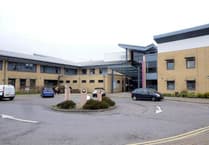We deserve better than two-tier takeover
Something momentous is about to happen to Farnham, whose effects may last for 50 years.
Before 1974, Farnham was run by a single authority, the Farnham Urban District Council (FUDC). It was local, lean and effective, not unlike Farnham Town Council today.
In 1974, national government under Ted Heath reorganised local authorities and Farnham became part of Waverley Borough Council, funded through the newly introduced council tax. While it is true that modern life and government have become more complicated and expensive, few could call Waverley a triumph. At best, it has been a partial success.
Some of its councillors have been visionary, capable and committed. Others have been visionless and self-serving. Brightwells remains the single biggest disaster to hit Farnham this century. Farnham, the largest of Waverley’s four areas, has long served as the borough’s milch cow, so few tears will be shed for Waverley’s demise.
Even fewer, though, for its proposed replacement. If you have tears, prepare to shed them now.
We were told the choice was between two-tier and three-tier structures of local government. Almost everyone who expressed a view preferred three-tier, seeing it as more local, more democratic and more hands-on. National government, under Keir Starmer, and Surrey’s senior officials favour two-tier, seeking maximum revenue for minimal input, though they would no doubt phrase it more politely.
Last week, the national press reported that Surrey would be first to decide which system to adopt, without consultation. No surprise, then, that two-tier has been chosen.
Some facts, and a few questions: Farnham makes up 30 percent of Waverley’s population but under the new structure will account for just six per cent. How could that bring anything but less attention? Nineteen councillors will become six. How can that lead to better service?
Waverley has been the most financially prudent council in Surrey. By contrast, Woking is £2 million in debt, Spelthorne and Rushmoor are heavily indebted, and Guildford is struggling.
No further questions are really needed.
This process will now unfold bureaucratically and ponderously — and at what cost, one wonders. Probably lined pockets for those involved, paid for by us, as part of a council tax system renamed to make us think we are getting something better and new.
There may, however, be one redeeming feature for those who live in Farnham, even if not for residents in the outlying areas. The town council is working to assemble packages of assets that could be transferred for it to administer. The evidence of many years suggests that smaller is better and bigger is worse. Fingers crossed.
I hope to scrutinise the poisoned chalice being forced upon us, together with the many people who will be aggrieved by this appalling treatment. Let us not take this lying down.
David Wylde
St James Terrace
Farnham
South-west Surrey will pay the price
I am horrified by the imposition of a unitary authority on us. I have yet to find anyone who supports this change.
For Haslemere to be joined with Ashford (Middlesex) is quite ridiculous, as there is nothing whatsoever in common with the outer London towns.
Already, the health board has moved elective surgery to Ashford Hospital without any consideration for those living in the south of the county.
It seems the Government is offering a small amount towards the huge, debt-ridden councils in north-west Surrey, but those of us who have been prudent and now find ourselves unlucky enough to live in south-west Surrey will become the milch cow for the new unitary authority.
Independent reviews by the Local Government Association show no savings from the change. Local media even suggest it could add an extra £12 million in costs.
We had all better prepare for huge increases in council tax.
Robert Knowles
Beech Road
Haslemere
The case of the missing police stations
I have written a modern-day play featuring Sherlock Holmes, Dr Watson and Inspector Lestrade. I can hear Basil Rathbone, Nigel Bruce and Dennis Hoey reading the script:
Sherlock Holmes: Good morning, my dear Inspector Lestrade. How are you today?
Inspector Lestrade: Not too good, I’m afraid. I have some more bad news about closures.
Dr Watson: One gets the impression that politicians no longer think it is important to have 24-hour local police stations in our towns and villages.
Sherlock Holmes: I fear, my dear Watson, that crime went in one ear and out the other with the politicians — and that has had a massive impact on victims of crime.
Inspector Lestrade: Exactly. That is why we have been left with no choice but to close the police stations and leave the towns and villages without their vital 24-hour presence.
Dr Watson: I call this incredibly irresponsible when you are trying to tackle crime around the clock.
Sherlock Holmes: Dear inspector, your cases must be piling up every day now that you’ve lost hours of valuable detective work.
Inspector Lestrade: They are indeed Mr Holmes. And it doesn’t help that no one seems to think it’s important to have a daily television programme or newspaper dedicated to unsolved crimes.
Dr Watson: I think the politicians are still unaware of what that means for the poor victims of crime.
Inspector Lestrade: The Government ignored why it is essential to keep 24-hour local police stations to tackle crime day and night — something we once had.
Sherlock Holmes: The ratepayers, such as shopkeepers and business owners, are clearly not happy. They are paying hefty sums which should be funding these vital round-the-clock police stations.
Inspector Lestrade: Quite so. Thefts have increased dramatically on our high streets, and the closures are making our job much harder due to the lack of visible police presence.
Dr Watson: I concur. The Government have got it all wrong and seem to have no idea how bad it is, nor do they seem concerned.
Sherlock Holmes: Clearly not. Twenty-four-hour police stations have been reduced to single figures in most counties, leaving night-shift officers covering huge areas to prevent crime.
Jane Page
Oaklands
Haslemere




Comments
This article has no comments yet. Be the first to leave a comment.